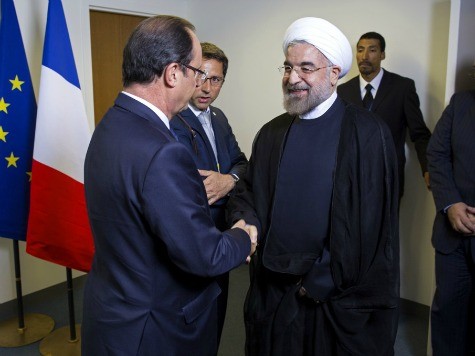
Many observers are stunned that France has shown more backbone in dealing with Iran than the United States–especially given that France has a Socialist president.
While most agree that the Obama administration has adopted a weaker posture in general, of which its feeble efforts at a deal with Iran are just the latest symptoms, there are many different opinions about why a post-Nicholas Sarkozy France is acting the way it is.
One reason, as Bret Stephens notes in his column Tuesday at the Wall Street Journal, is that France has “always” taken the threat of a nuclear Iran more seriously than the U.S. That is for two reasons. First, France and much of Western Europe is within range of the outer edge of Iran’s medium-range missile systems. Second, France wants to preserve the nuclear club of nations as a small group in order to maintain its own diminished power.
But there is a third reason, which becomes clear when thinking back ten years ago to France’s determined opposition to the Iraq War: France has extensive commercial interests in the Middle East. That is especially true because so much of the French economy is connected to the state. Germany’s commercial interests lie in sanctions-busting, but France’s interests lie in closer relations with the region’s Sunni powers.
France also sees opportunity in American passivity. It was France that urged the U.S. to intervene in Libya, and it was France that fought Al Qaeda in West Africa when Obama could not quite be roused to do so. It was France that was most bitterly disappointed in the administration’s failure to take military action in Syria. The Saudis, too, were upset, and began distancing themselves from the U.S. France, like Russia, sees opportunity.

COMMENTS
Please let us know if you're having issues with commenting.